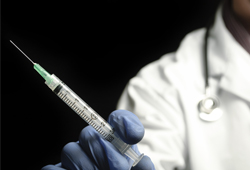 Below are some highlights of recent biosimilar development news from this week:
Below are some highlights of recent biosimilar development news from this week:
On September 20, Mochida announced that it had obtained marketing approval in Japan for RGB-10, a biosimilar of FORTEO (teraparitide) that Mochida developed in Japan based on a comprehensive license and collaboration agreement with Gedeon Richter Plc. Mochida has not yet announced an expected launch date.
On September 19, the Committee for Medicinal Products for Human Use (CHMP) of the European Medicines Agency (EMA) adopted a positive opinion recommending a change to the marketing authorization for Celltrion’s infliximab biosimilar, REMSIMA. Specifically, CHMP recommended approval of a new route of administration, strength, and pharmaceutical form for REMSIMA: 120 mg solution in prefilled pens or syringes for subcutaneous injection.
Also on September 19, Innovent Biologics announced results of a phase-3 study comparing the safety and efficacy of its bevacizumab biosimilar candidate, IBI305, to the reference product, AVASTIN (bevacizumab). According to the press release, the results showed no statistical difference in median progression-free survival for patients with advanced non-small cell lung cancer treated with IBI305 versus the reference product.
On September 19, it was also reported that Dr. Reddy’s Laboratories plans to conduct a phase-3 study in Korea on its rituximab biosimilar DRL_RI, after receiving approval from the Ministry of Food and Drug Safety. The study will enroll patients with follicular lymphoma to compare efficacy, safety, and immunogenicity to the reference product MABTHERA (rituximab).
On September 18, Fresenius Kabi SwissBioSim, a Fresenius Kabi company, announced it had opened a new biosimilar research and development center in Eysins, Switzerland.
